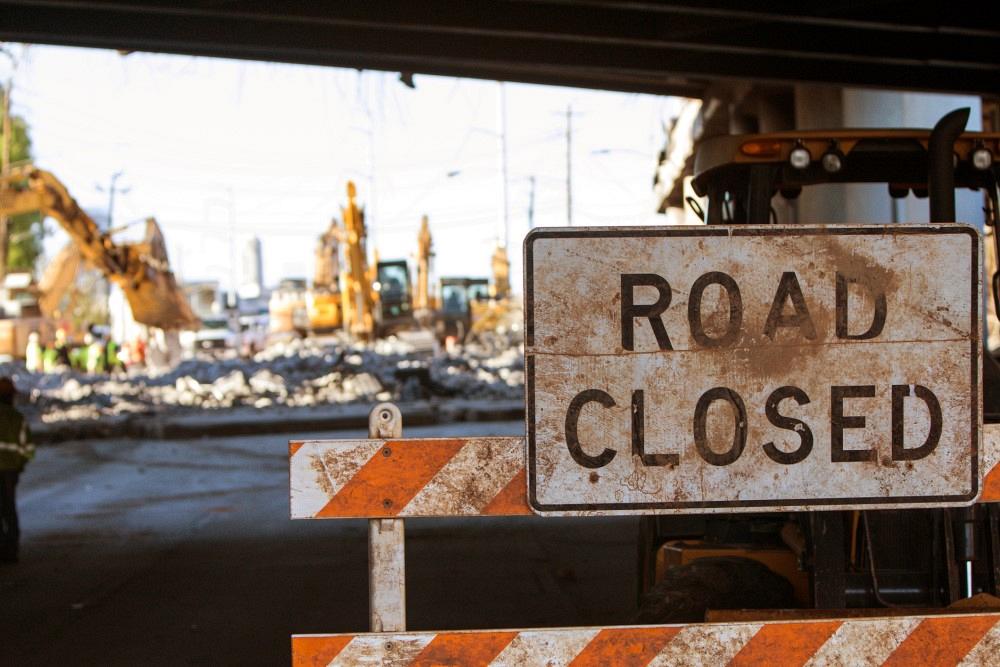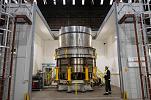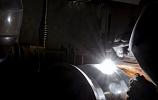Owner, Brown Dog Welding
- FMA
- The Fabricator
- FABTECH
- Canadian Metalworking
Categories
- Additive Manufacturing
- Aluminum Welding
- Arc Welding
- Assembly and Joining
- Automation and Robotics
- Bending and Forming
- Consumables
- Cutting and Weld Prep
- Electric Vehicles
- En Español
- Finishing
- Hydroforming
- Laser Cutting
- Laser Welding
- Machining
- Manufacturing Software
- Materials Handling
- Metals/Materials
- Oxyfuel Cutting
- Plasma Cutting
- Power Tools
- Punching and Other Holemaking
- Roll Forming
- Safety
- Sawing
- Shearing
- Shop Management
- Testing and Measuring
- Tube and Pipe Fabrication
- Tube and Pipe Production
- Waterjet Cutting
Industry Directory
Webcasts
Podcasts
FAB 40
Advertise
Subscribe
Account Login
Search
Playing With Fire: Why it’s problematic to redefine the word infrastructure
- By Josh Welton
- June 30, 2021
- Article
- Arc Welding

President Joe Biden recently released his infrastructure plan. Detroit metal fabricator Josh Welton of Brown Dog Welding writes how he believes Biden chose politics over real improvement. Getty Images
Infrastructure as defined by the Oxford English Dictionary:
1. “The basic physical and organizational structures and facilities (e.g., buildings, roads, power supplies) needed for the operation of a society or enterprise.”
When President Biden announced a huge “infrastructure” bill with his American Jobs Plan, I was stoked. The U.S. has been receiving primarily dismal grades on traditional infrastructure since the American Society of Civil Engineers (ASCE) began issuing them in 1998.
I wrote a column last year specifically calling out our political leaders to address our country’s infrastructure needs:
“The ASCE releases a report card every four years grading infrastructure in the U.S. Every four years, the average grade is a D. Every four years, the money lost goes up, the cost to fix the problems goes up, the toll on humans goes up. It doesn’t matter who is in office or what party controls Congress; we haven’t seen either side suggest any long-term solutions. None of them truly care because there is no quick fix. When Congress does act, it’s a short-sighted Band-Aid so they can tell their constituents that they did something about it while they were in office.”
Given President Biden’s language and the current economic climate, who could argue with spending financial and human resources on our failing infrastructure? It felt like we were on the verge of a significant commonsense breakthrough. Unemployment remains overwhelmingly high, and people need money, right? And, according to the ASCE, America is budgeting only about half of what it would take to maintain a decent infrastructure. So why not invest the trillions of dollars necessary in production and workforce, as opposed to stimulus checks or tax rebates, and kill two birds with one stone? It makes so much sense.
Unfortunately, our sitting president and his party—not unlike other presidents or other parties before them—are playing fast and loose with the meaning of words. Rather than being an actual infrastructure bill, this latest $2 trillion proposal is a little bit of infrastructure and a whole lot of social services. And now, rather than a universally palatable deal, the Democrats and Republicans are digging in along party lines, with the former going on an all-out blitz to “evolve” the meaning of the word infrastructure itself:
"Paid leave is infrastructure. Childcare is infrastructure. Caregiving is infrastructure.”- Sen. Kirsten Gillibrand, N.Y.
"Roads and bridges are built predominantly by men. Care work is done predominantly by women. Those who say the former is infrastructure while the latter is not are telling on themselves."- Rep. Jamaal Bowman, N.Y.
"If you don't think that care work is infrastructure, then you haven't been paying attention."-Rep. Katherine Clark, Mass.
This whole game of “If you disagree with us, then you’re morally deficient” is tiresome.
Just because a thing is essential does not mean that it is infrastructure. If so, what stops Republicans from playing the same name game the next time?
I’m looking forward to the great “Social Services” plan of 2025. What do you mean highways aren’t social services? If nursing home staffs are “soft infrastructure,” why can’t interstates be “hard social services?” Surely, providing our society with services requires transportation, and that requires roads; therefore, roads are necessary for social services.
Can you see why this is problematic?
None of this is to say that we don’t need to expand what falls under infrastructure as technology grows. I think broadband is a pretty natural extension of existing infrastructure, as does the ASCE. And if we’re serious about an electric future, our grid doesn’t just need repairing, it requires a massive overhaul and expansion. Just ask Texas. The ability to support electric vehicle charging stations from coast to coast falls under infrastructure for sure.
As critical as care services are to our communities, it takes a fairly big suspension of common sense to call it infrastructure. Attaching countless social programs that you want to fund to a word that the nation has understood as something else entirely is, at best, disingenuous. Packaging it as some kind of righteous referendum is equally appalling when the thing you’re shortchanging is the literal physical foundation of our country.
I could almost understand it if our country’s existing infrastructure hadn’t been ignored for decades and wasn’t crumbling and limping along. You know, if we were all getting clean water, and the roads weren’t destroying our cars. If broken dams weren’t flooding towns, and massive power grid failures weren’t shutting down states during a pandemic. And if the internet was accessible to everyone, and public transportation wasn’t an afterthought, then maybe we use that excess goodwill and money to help out in other areas.
However, that is not our reality. Even if the entirety of the proposed $1.9 trillion bill were spent solely on infrastructure, it would still fall just short of bridging this massive deficit we carry. To be sure, the plan does throw money to infrastructure and American skilled labor, but it's less than half of the cash.
What we need are two plans: One to focus on care services and affordable housing, and the other to cater to the power grid, railways, bridges, dams, broadband, and other core pieces. One can focus on social services, the other one on real infrastructure.
But instead of logic, it’s just politics as usual.
About the Author

About the Publication
subscribe now

The Welder, formerly known as Practical Welding Today, is a showcase of the real people who make the products we use and work with every day. This magazine has served the welding community in North America well for more than 20 years.
start your free subscription- Stay connected from anywhere

Easily access valuable industry resources now with full access to the digital edition of The Fabricator.

Easily access valuable industry resources now with full access to the digital edition of The Welder.

Easily access valuable industry resources now with full access to the digital edition of The Tube and Pipe Journal.
- Podcasting
- Podcast:
- The Fabricator Podcast
- Published:
- 04/16/2024
- Running Time:
- 63:29
In this episode of The Fabricator Podcast, Caleb Chamberlain, co-founder and CEO of OSH Cut, discusses his company’s...
- Trending Articles
Sheffield Forgemasters makes global leap in welding technology

ESAB unveils Texas facility renovation

Engine-driven welding machines include integrated air compressors

How welders can stay safe during grinding

The impact of sine and square waves in aluminum AC welding, Part I

- Industry Events
16th Annual Safety Conference
- April 30 - May 1, 2024
- Elgin,
Pipe and Tube Conference
- May 21 - 22, 2024
- Omaha, NE
World-Class Roll Forming Workshop
- June 5 - 6, 2024
- Louisville, KY
Advanced Laser Application Workshop
- June 25 - 27, 2024
- Novi, MI



























